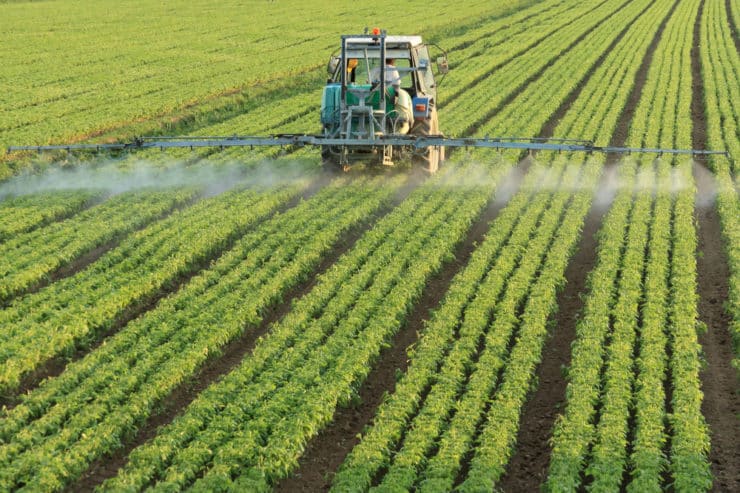FAQ
Paraquat Linked to Parkinson’s Disease
Paraquat, an industrial weed killer, has been linked to an increased risk of Parkinson’s Disease in farm and agricultural workers and others who were exposed to the herbicide. Recent studies indicate that the risk of Parkinson’s Disease for those exposed to Paraquat may be up to six times higher, depending on length and severity of exposure.
People who were exposed to Paraquat use in farming or agricultural work, and others who live near industrial farms or areas where Paraquat is used, may be at increased risk for developing Parkinson’s Disease. Parkinson’s Disease is a degenerative disorder which may take years to develop, and exposure to Paraquat may have occurred in the past.
Though many countries have banned use of Paraquat, it is still sold widely throughout the U.S. Workers may have been exposed to the chemical for years while mixing and spraying Paraquat or while processing crops sprayed with the herbicide. Chemical companies which manufacture products containing Paraquat may be facing multiple Paraquat Parkinson’s Disease lawsuits. People who worked with or were exposed to Paraquat-containing products and developed Parkinson’s disease may be eligible for compensation.
Products Containing Paraquat
Herbicides and weed-killers that contained Paraquat include:
- Gramoxone (Syngenta)
- Ortho-paraquat (Chevron)
- Parazone (Henkel, ADAMA USA)
- Bonedry Herbicide (Sinon USA)
- Firestorm (MacDermid Agricultural Solutions)
- Helmquat (Helm Agro)
- Para-SHOT (Sharda USA)
Several manufacturers of Paraquat-containing products are now facing lawsuits filed by agricultural and farm workers who developed Parkinson’s Disease after exposure to products containing Paraquat
Parkinson’s Disease and Paraquat
Parkinson’s Disease is a degenerative disorder affecting the brain’s ability to direct movement and other activities. It is caused by destruction or degradation of dopamine receptors in certain areas of the brain and results in symptoms such as:
- Difficulty with balance and coordination
- Tremors and shakiness
- Difficulty starting movement
- Abnormal muscle contractions
- Abnormal movements
- Pain
- Gastrointestinal issues
- Mental and behavioral changes
- Vocal symptoms
Symptoms may begin as minor irritations and progress over time to debilitating illness and possible death. Paraquat is thought to increase the risk of Parkinson’s disease by interfering with dopamine receptors and destruction of dopamine neurons.
Studies indicate that Parkinson’s Disease risk may be increased by 75% to as much as 600% depending on severity of exposure. Also depending on severity of exposure or toxicity, Parkinson’s Disease symptoms may occur immediately or may not develop for a long period of time.
Paraquat Banned in Other Countries
Paraquat has long been known to be highly toxic with internal ingestion potentially resulting in multiple organ failure. Less well-known is that other types of exposure, including inhalation and skin contact have been linked to increased risk for neurological damage such as Parkinson’s Disease.
Paraquat and products containing Paraquat are banned in at least 32 countries outside of the U.S., including countries of the European Union or EU. In the U.S., though the product remained available, in 1997 the Environmental Protection Agency (EPA) recommended that use of Paraquat be restricted to industrial settings. This has continued to leave many workers on farms and in agricultural settings, and those living near industrial farms, potentially subject to exposure and increased risk of Parkinson’s Disease.
Paraquat Manufacturers Fail to Warn
The toxicity of Paraquat is widely known and warnings about ingestion (swallowing) are included on labelling. However, the risk of developing Parkinson’s Disease while being exposed to the herbicide may have been hidden by manufacturers.
Paraquat products do not contain any warnings about the need for safety equipment such as masks, gloves, or personal protective gear, only warning about dangers of drinking or ingesting the chemical. People who used the products may have worn safety gear if they had been advised of the risks of exposure.
Internal company documents from Syngenta, manufacturer of paraquat product, Gramaxone, may show that the product could have been made safer and that that Syngenta was aware of the Parkinson’s risk but failed to act to reduce the risk.
Paraquat Parkinson’s Disease Lawsuit Settlements and Updates
Syngenta, Chevron, and other manufacturers of paraquat-containing herbicide products may be facing multiple lawsuits filed by farmers and agricultural workers who claim that exposure to Paraquat has caused them to develop Parkinson’s Disease. A number of claims against Syngenta and Chevron were consolidated into multidistrict litigation (MDL) in the U.S. District Court for the Southern District of Illinois.
Paraquat Parkinson’s Disease Lawsuits claim that companies manufactured a dangerous product that could have been made safer and that the risks of using the chemicals were hidden by the companies.
In June of 2021, Syngenta agreed to pay an estimated $187.5 million to settle certain Paraquat lawsuit claims filed against the company in State court in Illinois. In February 2022, U.S. District Judge Rosenstengel denied company attempts to dismiss certain claims regarding negligence and product liability.
Over 3,000 lawsuits against manufacturers of Paraquat products have been filed in Illinois federal court and state courts in Pennsylvania, California, Florida, and Washington and more may be expected. Trials in multiple courts are set to begin in 2023 and 2024.
Agricultural and farm workers and other people who were exposed to Paraquat and developed Parkinson’s disease may be eligible for compensation.
